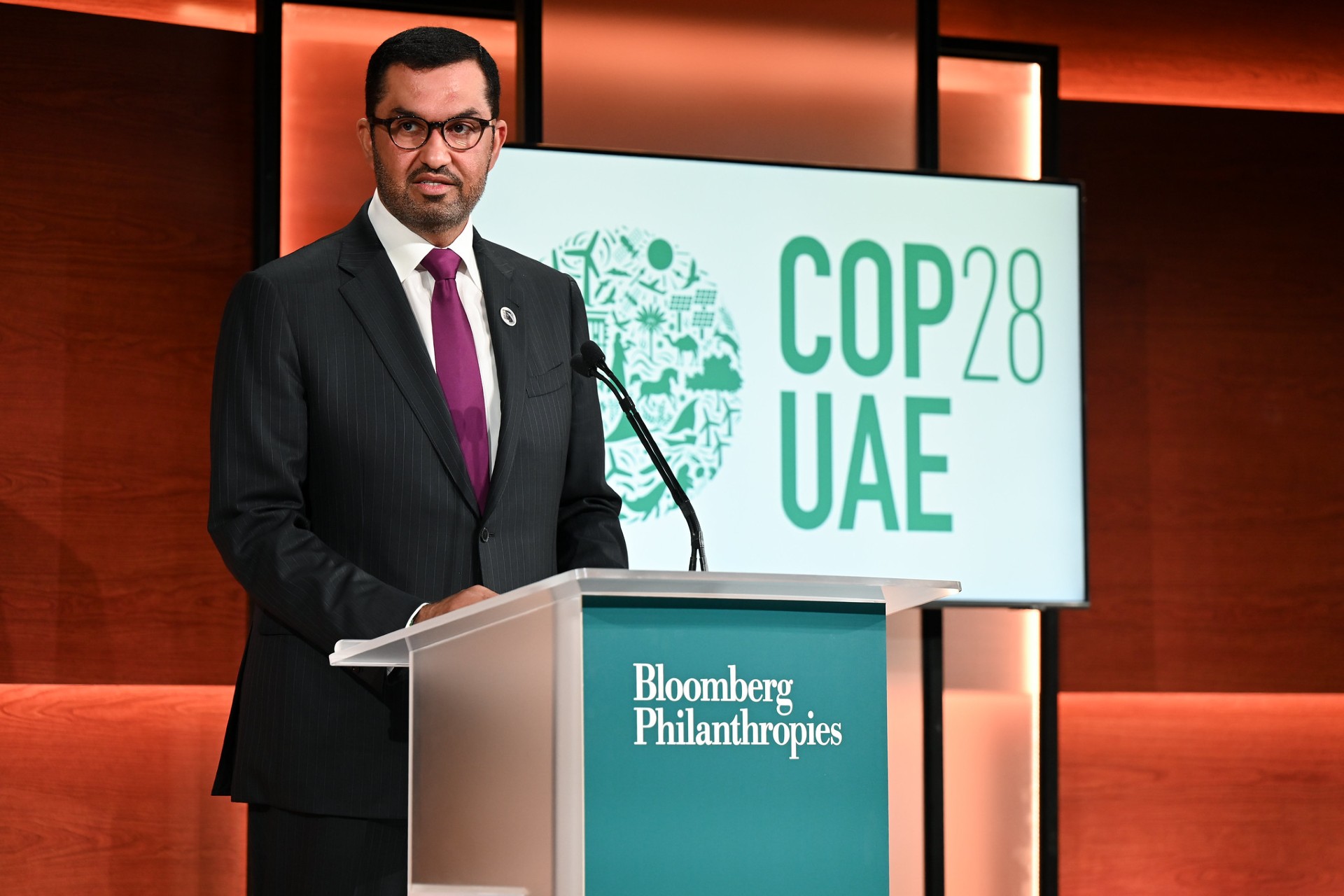By Sustainable Energy First CCO, Anthony Mayall

Just days before COP28 was due to begin, multiple news stories suggested its UAE hosts had been planning to leverage the talks for oil deals.
What is there to learn about corporate sustainability and transparency from the debacle, and can COP ever recover?
The accusations in detail
The BBC reports that leaked briefing documents reveal UAE plans to discuss fossil fuel deals with 15 nations. The documents – obtained by independent journalists at the Centre for Climate Reporting (CCR) working alongside the BBC – were prepared by the UAE’s COP28 team for meetings with at least 27 foreign governments ahead of the summit.
They included proposed “talking points”, such as one for China which says Adnoc, the UAE’s state oil company, is “willing to jointly evaluate international LNG [liquefied natural gas] opportunities” in Mozambique, Canada and Australia.
The documents suggest telling a Colombian minister that Adnoc “stands ready” to support Colombia to develop its fossil fuel resources.
There are talking points for 13 other countries, including Germany and Egypt, which suggest telling them Adnoc wants to work with their governments to develop fossil fuel projects.
The Guardian notes that Sultan Al Jaber, who will run COP28, is the chief executive of the national oil company Adnoc as well as the UAE’s climate envoy. This dual role has been criticised as a conflict of interest.
A COP28 spokesperson told The Guardian: “The documents referred to are inaccurate and were not used by COP28 in meetings.” He did not specify the inaccuracies. A COP28 spokesperson told CCR: “Private meetings are private, and we do not comment on them.” Adnoc did not respond to a request for comment.
The UN climate secretariat told the BBC the “cardinal principle” for COP presidents is “the obligation of impartiality”. It said presidents were “expected to act without bias, prejudice, favouritism, caprice, self-interest, preference or deference, strictly based on sound, independent and fair judgement”.
Tom Rivett-Carnac, a former political adviser to the UN climate chief, said using the COP process to further national commercial interests was “absolutely not” allowed. “The authority of a COP president flows from rising above national interests and if countries come to a negotiation and believe the president who’s setting the agenda is actually pursuing narrow self-interest, then trust will quickly collapse.”
Amnesty International’s climate adviser Ann Harrison called for Jaber’s resignation as head of COP28. She told the Financial Times: “Documents suggesting he was briefed to advance business interests in COP meetings only fuel our concerns that COP28 has been comprehensively captured by the fossil fuel lobby to serve its vested interests,” she said, adding it looked “ever more like a fox is guarding the hen house”.
A smoking gun
That these issues threaten the very integrity of global climate talks needs no explaining. This is not the first time the COP process has been under the spotlight for the wrong reasons.
At COP27, Global Witness found there were twice as many fossil fuel lobbyists as delegates from the official UN constituency for indigenous peoples.
Assuming the leaked documents point to truths taking place behind the scenes, there appears little wiggle room for those behind the conference. Excuses seem thin on the ground.
Allowing the lead for the event to also act as chief exec on UAE’s state oil firm seems in particularly bad taste. It’s very hard for your correspondent to assess how such an appointment could result in anything other than conflicted interests, compromise, or outright corruption.
What next for transparency in climate talks?
The solution is not to ban, nor to prevent fossil fuel advocates from attending such conferences. Global sustainability and the corporate low carbon transition cannot be achieved in isolation.
Yet, nor can the fossil lobby be allowed to hijack the COP agenda in favour of wringing the last dregs out of legacy energy and resource deposits.
A more inclusive approach must become the solution. Rather than endless comments from the International Energy Agency decrying how poorly the world’s fossil firms, and indeed fossil rich countries are doing, could commentary on how they might profitably transform their soon to become stranded assets be more useful?
Fossil fuel firms, necessarily, are under massive pressure. So, correctly, are countries rich in fossil resources. A more open dialogue that embraces their predicaments while seeking to kindly gather them into a more sustainably-minded business mindset could help.
Perhaps rather than leaked, secretive documents, open roundtables at COP events should actively be asking; ‘Why should $billion fossil companies, and governing state entities transition to the low carbon agenda?’
Perhaps the world’s scientists should be at COP events, bringing new papers and new proposals for the legacy fossil lobby on how to welcome it into a new fold of global green business through new technologies?
Briefings behind closed doors tend to happen because parties feel threatened, know they are in the wrong, or are simply ignorant, greedy, or desperate.
Some or all of these elements may be at play in the COP leakings. But they point to a wider issue; has the low carbon lobby given enough empathy and space to the fossil giants rapidly foreseeing a endgame to their profit and power?
And, does the low carbon lobby truly want to involve these legacy players in tomorrow’s solutions? Because if so, COP is the place to do this.
Equally, New Scientist notes that fossil fuel companies have expertise and resources that could help with all this, but they aren’t yet doing much to speed this transition to clean energy. A recent report from the IEA found just 1 per cent of global investment in clean energy has come from fossil fuel companies.
They too have much to improve upon.













